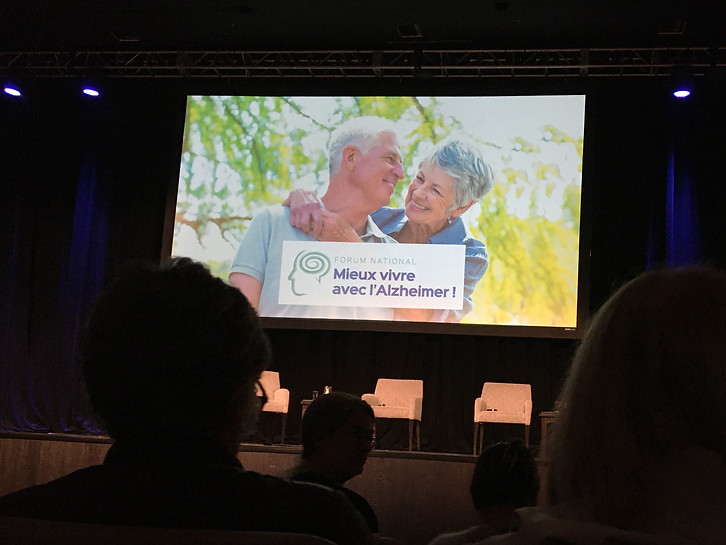
Science Conference
As part of my science project concerning vaping, I decided to attend the E-cigarette Summit USA of 2021. Since all conferences had to be done online due to the pandemic, I could attend it without flying to Washington. A total of 30 speakers were part of this event to shed the light surrounding many issues concerning vaping including youth users, relapse prevention and nicotine/tobacco control in different countries. Here's an overview of the conferences that interested me the most.
Assessing the Safety of E-cigarettes
Dr. Denowitz
This conference was an overall comparison between the effects of regular smoking and these of vaping. The chemical comparison permitted the audience to understand that the most harmful particles of smoking (carbon monoxide and heavy metals) were not present in the vapor of e-cigarettes. Although the components mostly stay the same, in vapes, two new ones can be found in various quantities; propylene glycol and flavoring chemicals. Depending on the vaping device, different voltage and heats will be used and therefore will create alternative chemicals which will be inhaled into the lungs. Many safety concerns were also brought up to raise awareness related to teen vaping.
What is the Mindset of Today's Cigarette Smokers?
Kathleen Crosby, FDA Center for Tobacco Products
Here a study was being presented to establish smoker's habits and point of view to try and help them better. It is known that smokers mostly smoke during stressful time to decompress or they use cigarettes as a kind of reward for themselves. There is also a social aspect related to smoking which many people fear to loose if they quit the habits of smoking. The definition of quitting seem to have changed during the last few decades, becoming more like reductive strategies with new alternative devices, To the audience greatest surprise, smokers had many false pre-made ideas concerning smoking such as when concerning the nature of nicotine and the quality of their products.
The trend's overall behavior shows that smoking rates are dropping throughout the USA and are being replaced by e-cigarettes that are rapidly increasing in use.
Abigail Friedman
One approach to reduce teen vaping is to restrict flavors which masks the harshness and irritation involved with the smoke. The 2020 FDA recommendations concerning vaping didn't change much in youth habits, only leading them to use other alternatives like disposable pods.
Richard Miech
Adolescents who frequently use alcohol, nicotine or marijuana are at increased risks of negative short and long-term outcomes, such as bad school performances and criminal problems.
Jennifer Pearson
17 studies globally have found strong associations between youth vaping and subsequent cigarette smoking, which is very worrisome.
Ruoyan Sun
E-cigarettes as an Adaptive Relapse Prevention/Recovery Strategy: a Missed Opportunity?
Robin Mermeistein, PH.D at Illinois University in Chicago
This conference addressed the importance of vapes in the management of relapses in the ex-smoker population. Most of the time complete cessation cannot be held for a long time and that's when smokers take back their bad habits. In a new study, vapes were found to be more effective than behavioral therapies and other nicotine alternatives to reduce relapses rates. In reality, it provided more satisfaction to the user since the action and feeling of vaping resembles the one of smoking. Around 50% of user still relapsed one year after quitting, but it is a more encouraging result than 67% with conventional nicotine replacement therapies.

I also attended the national forum of Alzheimer's Society "Mieux vivre avec l'Alzheimer!". Being the daughter and caregiver of someone who is diagnosed with pre-onset Alzheimer really changed my view about this misunderstood illness. Since 2020, I made it my duty to stay informed about every breakthroughs or solutions concerning this devastating illness. Dementia is something that will affect not only the person diagnosed but also they're loved ones and lifestyles. These conferences gave me tools to learn how to navigate in this tilting world.
As part of my science project concerning vaping, I decided to attend the E-cigarette Summit USA of 2021. Since all conferences had to be done online due to the pandemic, I could attend it without flying to Washington. A total of 30 speakers were part of this event to shed the light surrounding many issues concerning vaping including youth users, relapse prevention and nicotine/tobacco control in different countries. Here's an overview of the conferences that interested me the most.


L'importance de la détection précoce
Dr. Nasreddine, neurologist and developer of the MoCA test
This conference started by presenting the tools that the healthcare systems developed over the years to detect different types of dementia. He took us through the whole process of a diagnosis from a doctor`s standpoint which made me realize how much work is put into one simple diagnosis. The teams coordinating everything really make a difference in the patients experience. It`s primordial to have a fast diagnosis in the case of dementia patients, yet the diagnosis still needs to be accurate. As he explained, even if there are minimal options concerning the treatments we can give, all hope is not lost. This conference was really interesting and made me realize how big the research world was. As a patient or caregiver you can easily get discouraged by the lack of options you get for treatments, but new drugs and test will be coming soon. We need to still have some hope.

This is me and my mom when we participated in a fundraising last summer for Alzheimer's Society
Navigating the Challenges of Caring for a Loved One with Dementia
Claire Webster
This conference addressed the story of Claire Webster herself. Her mom was diagnosed with dementia and she found herself becoming her caregiver. She beautifully portrayed the hardships you can have to go through as a relative of someone who has dementia. The person you knew might seem to be gone, yet they are sitting right in front of you. She gave us a bunch of books and links as resources to help us navigate this path. Her message was very touching and many people cried during the presentation. She would present the harsh truth about what was coming and would then proceed to give tips and tricks to go through those phases of grief. All in all, the best way to support someone who has dementia is to be there for him and with him.
Here is one of the most useful links she provided us : www.mcgill.ca/dementia